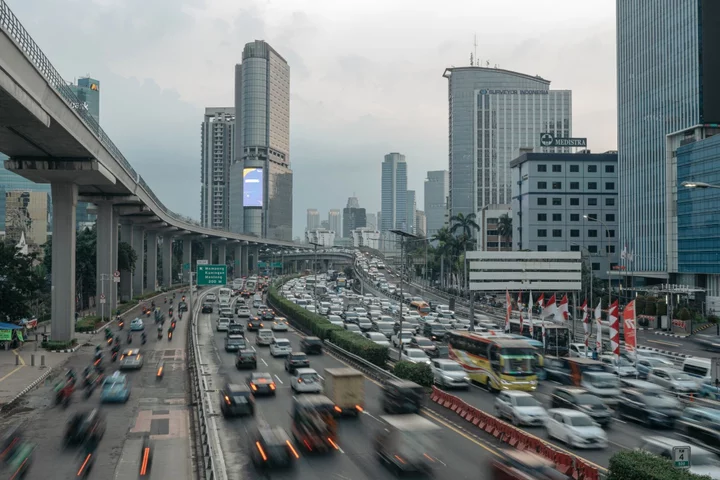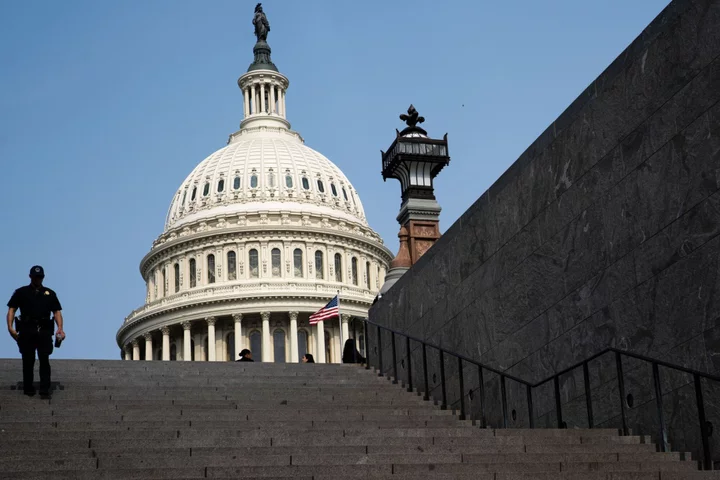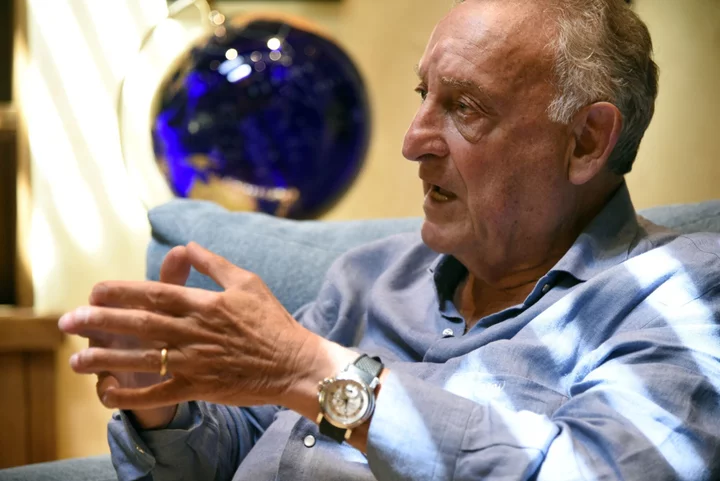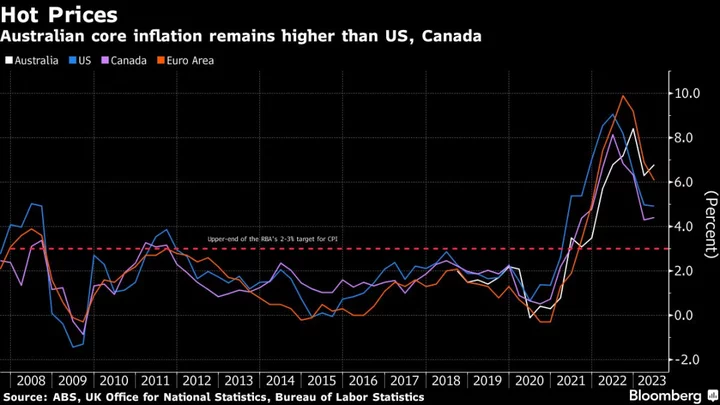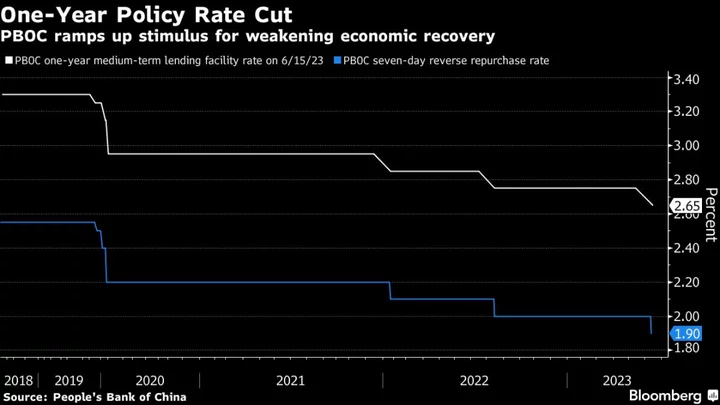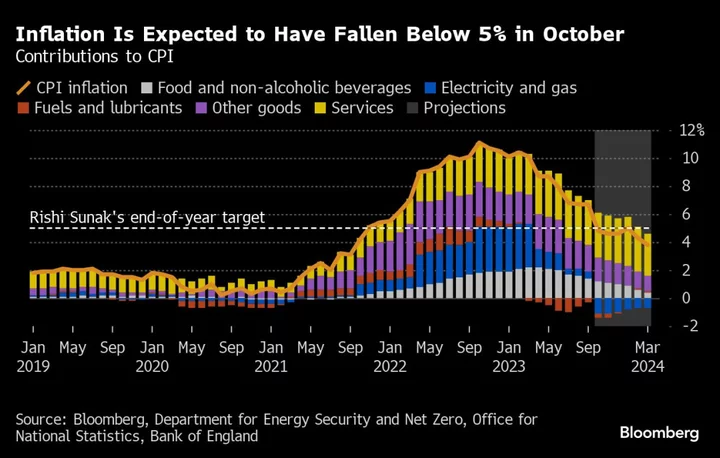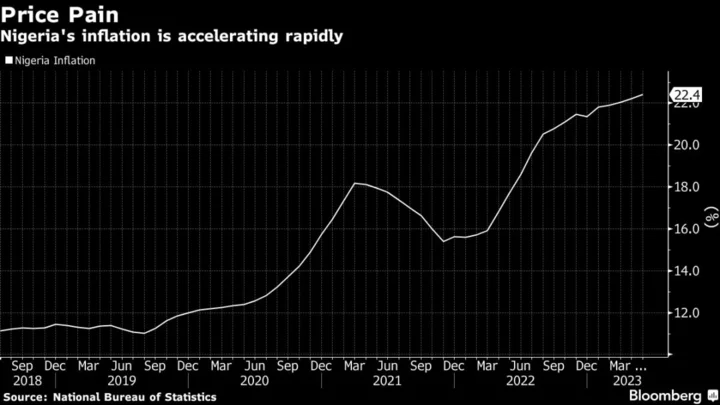Indonesia’s economic growth accelerated last quarter, fueled by consumption that defied the impact of higher interest rates, still-elevated prices and a commodity slowdown.
Gross domestic product rose 5.17% in the three months through June compared to a year ago, the nation’s statistics office said on Monday. That beats the 5% median forecast in a Bloomberg survey of economists and the expansion in the previous two quarters.
On a quarterly basis, the economy expanded 3.86% compared to the January-March period, higher than the 3.7% estimate. It’s the fastest pace of quarter-on-quarter growth in more than two years.
The growth surprise gives Bank Indonesia more room to keep borrowing costs at a four-year high to guard the currency, which has declined for three straight weeks as markets remain jittery over the prospect of further rate hikes by the Federal Reserve.
The benchmark Indonesian stock index was up as much as 0.6% after the data, while the rupiah held an early loss to trade around 15,184 per dollar .
Last quarter’s performance underlines the resilience of Southeast Asia’s largest economy amid the slump in global commodities, as government and household spending, along with increased investments and manufacturing helped counter lower exports.
It also puts the nation in good stead to post full-year GDP growth of 5%-5.3%, as Finance Minister Sri Mulyani Indrawati forecast last week. Spending ahead of the February 2024 election, as well as increased manufacturing activity should help offset weak demand from China and other export markets, she said earlier.
Consumption, which makes up over half of Indonesia’s GDP, grew 5.23% in the second quarter, accelerating from 4.54% in the previous three-month period. The highest GDP growth by industry were seen in transportation and warehousing with 15.28%, other services with 11.89%, and lodging and food services with 9.89%.
During the second quarter, domestic activity increased as the largely-Muslim nation celebrated two festivities along with school holidays, a spate of concerts and international conferences.
What Bloomberg Economics Says...
Household spending “is above the 5.0% trend in the decade before the pandemic, after having been below trend for the past two quarters. Government spending also surged, rising 10.62% year on year in 2Q following an increase of 3.99% in 1Q. The pace of investment more than doubled to 4.63% year on year in 2Q from 2.11%.”
—Tamara Mast Henderson
For the full note, click here
While headline inflation was at a still-high 4.33% in April, it swiftly fell back within the central bank’s 2%-4% target range in the past three months. Purchasing power rebounded due to holiday bonuses and the continued disbursement of social aid, according to Edy Mahmud of the Indonesia’s statistics bureau.
The holiday boost helped offset the nosedive in exports, which suffered from a sharp decline in global prices for Indonesian commodities like crude palm oil, coal and iron and steel. Overseas sales shrank 2.75% last quarter, reversing an expansion of 11.68% in January-March, and posting its first contraction in over two years.
--With assistance from Norman Harsono, Tomoko Sato and Eko Listiyorini.
(Updates with more details from briefing)

